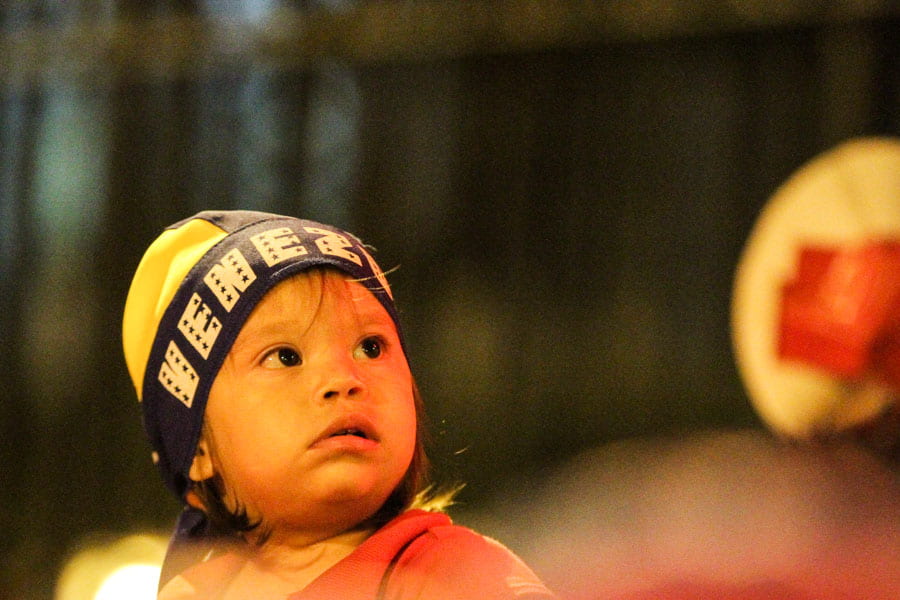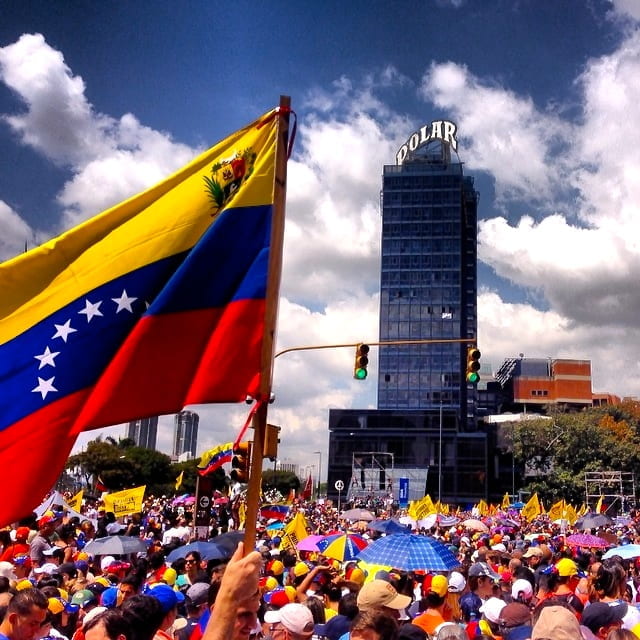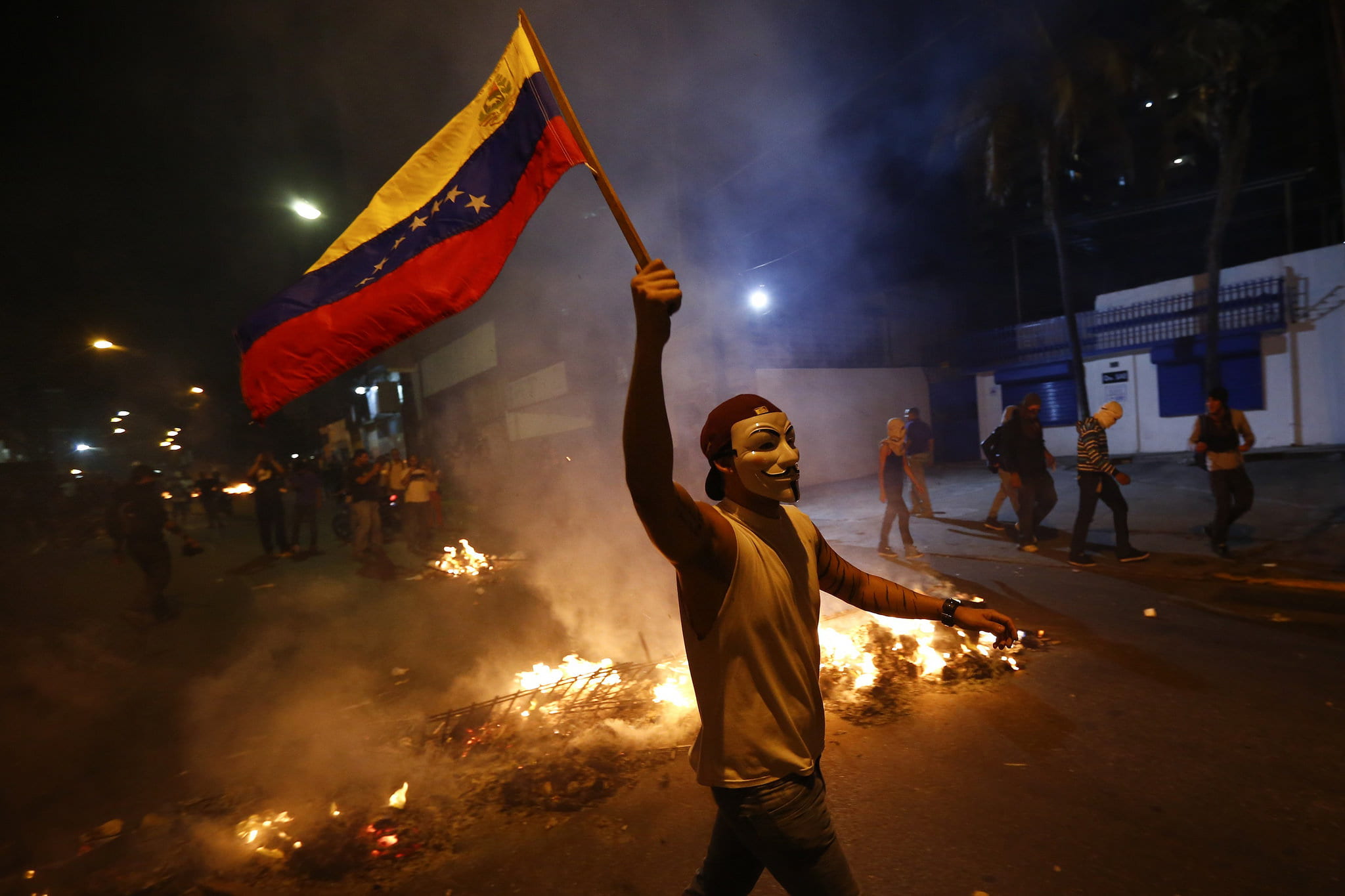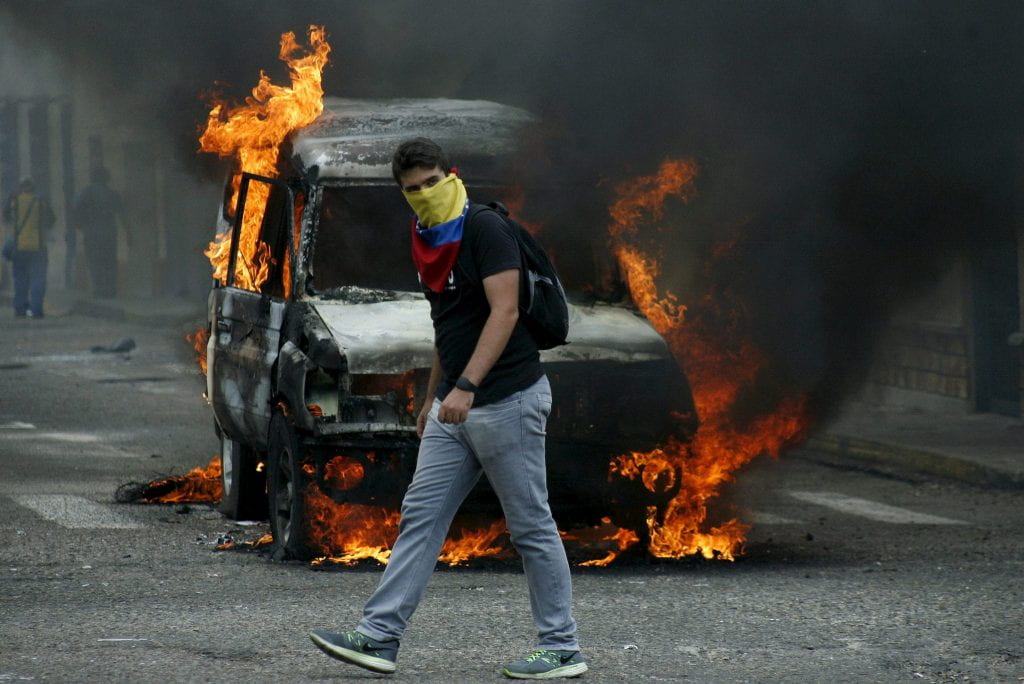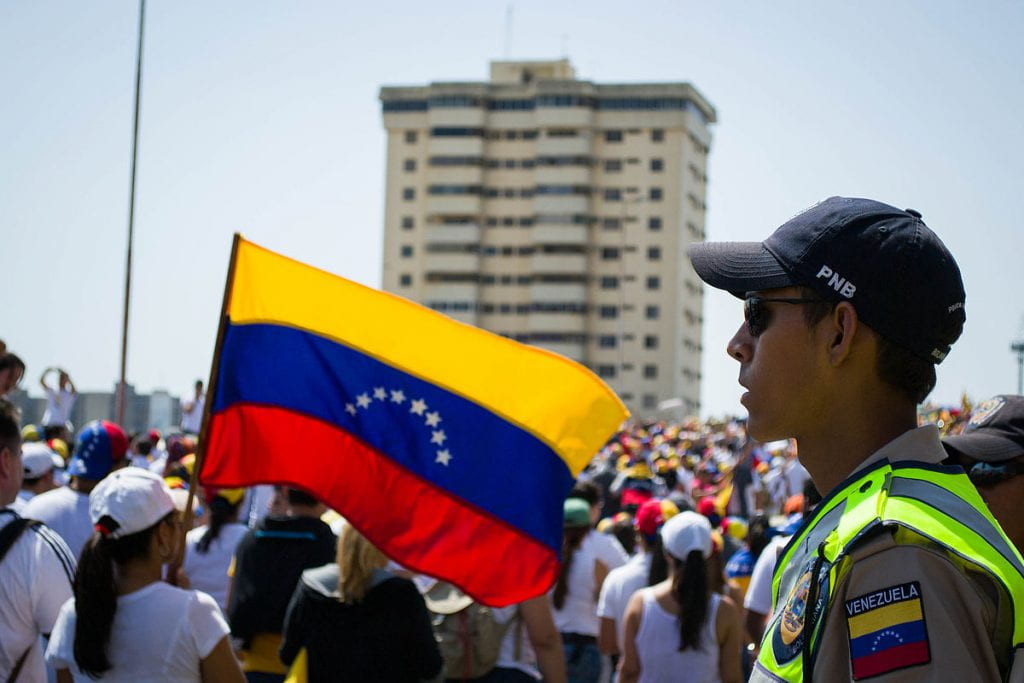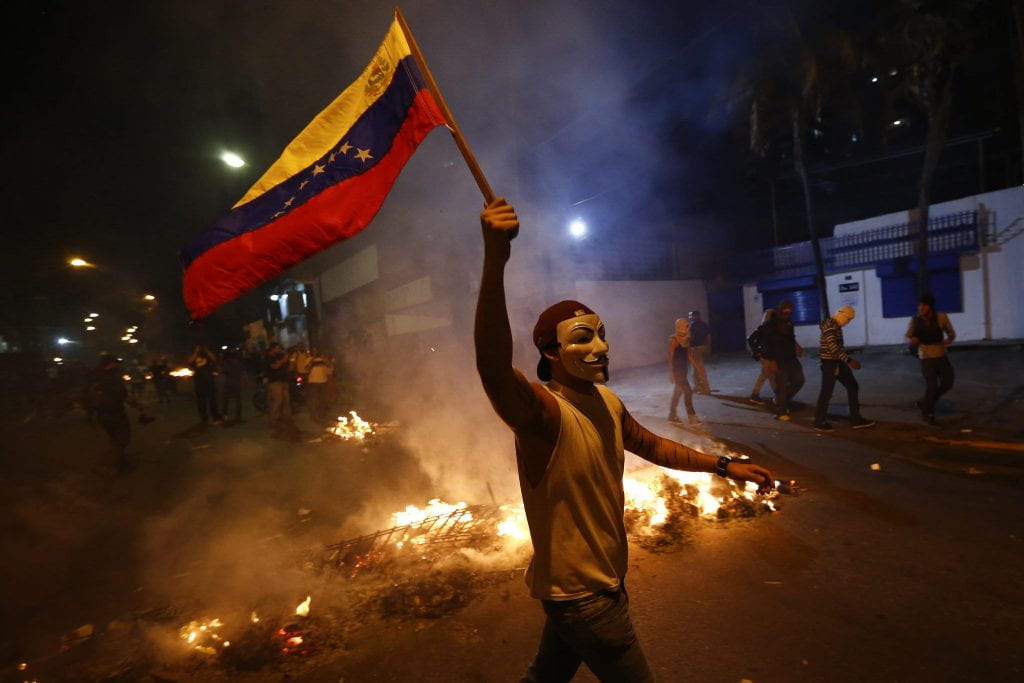Imagine being arrested in the middle of the night—no warrant, no explanation. This is the reality in Venezuela, where arbitrary detentions are used as a tool of political repression. As noted in “Behind the Ballot: Corruption, Repression, and Hope in the 2024 Venezuelan Elections,” politically motivated arbitrary detentions have run rampant in the country, years before and after Maduro’s victory was announced on July 28th by the National Electoral Council (CNE).
What Is Arbitrary Detention?
The United Nations defines arbitrary detentions as the deprivation of personal liberty (inability to leave at will) paired with unfairness, injustice, unpredictability, and a lack of proper legal procedures. Following the definition, Amnesty International also identified the patterns of arbitrary arrest in Venezuela to be: arrest without warrants; enforced disappearance followed by arrest; the use of torture or other cruel, inhuman, or degrading treatment; use of military tribunals; the use of special courts such as courts for terrorism cases; undue delays in investigating times and, subjection to criminal proceedings that make no progress and restrict the persons’ liberty, and retaliation as an aim of detention.

While protests have sparked and died down in the country, organizations such as Amnesty International, Foro Penal, and Observatorio Venezolano de Conflictividad Social have kept track of protests and detainees, documenting their experiences and the violations committed against them. Their websites contain contact forms and question banks to reach out for questions, information, and services.
The ultimate purpose of arbitrary detentions, as determined by these organizations, is to neutralize any perceived threat against the Maduro administration, where criticism is ultimately rejected, censored, and attacked. The key targets are activists, human rights defenders, protesters, and anyone suspected of opposing the government and its policies.
Inside Venezuela’s Institutions
Based on research on the correlation between stigmatization and politically motivated arbitrary detentions carried out by Amnesty International and the stories mentioned previously, both state and non-state actors are behind the detentions: SEBIN, Directorate General of Military Counterintelligence (DGMC), Local police, and armed colectivos. Since 2019, the Bolivarian National Guard (GNB) and the Directorate General of Military National Intelligence (DGCIM) continue to be the first and second main perpetrators of arbitrary detentions, third and fourth places occupied by the Special Action Forces (FAES) of the Bolivarian National Police (PNB) and by the PNB themselves.
As mentioned before, legal institutions continue to be manipulated by the misuse of anti-terrorism and public security laws to justify arrests. As a result, 33.3% of these cases were brought before ordinary courts with criminal justification, 9% before courts with special jurisdiction over terrorism, and 6.6% before courts with military jurisdiction. Lack of judicial independence is not uncommon since there is interference from the executive branch.
At least 60 people arbitrarily detained were prosecuted in special courts with jurisdiction over terrorism in 2019. What’s more, invoking the Code of Military Justice—which gives the military courts jurisdiction over military offenses not only committed by military personnel but also by civilians—has led to the persecution of hundreds of civilians before military courts. They are commonly charged with treason or rebellion. In fact, the military courts do not meet the requirements for impartiality and independence, reflecting a poor separation of powers and influence from the executive branch, according to the International Commission of Jurists.
From Protests to Prison: A Timeline of Arbitrary Detentions
2013-2019
Reports of inhumane treatment and torture of political detainees surfaced in 2013 after Maduro won the April elections, and opposition leader Henrique Capriles accused him of fraud. Protests broke out in the streets, resulting in many detentions. As a response, a civil rights group filed a complaint to the International Criminal Court in Hague to investigate violations of human rights committed against detainees.
In 2017, protests sparked again to express displeasure towards a ruling issued by the Supreme Court that made the National Assembly—the unicameral legislature of the country—powerless. As a result, 5,000 people were detained. A rights group shares how the detainees were beaten, sexually assaulted, or given electrical shocks, according to AP News.
Emirlendris Benitez is one of many arbitrary detainees. She was detained in 2018 for alleged links to a drone attack against President Nicolás Maduro. She reported torture and inhumane treatment while in custody. According to the report and a compilation of similar cases, she forcefully disappeared for a few weeks after her detention, and her pregnancy was terminated without her knowledge or consent. After being subjected to torture, she was transferred to a medical facility in July 2023 and now requires a wheelchair. Amnesty International shared her story and advocated for her immediate release in an urgent action announcement.

Fear as a weapon: how arbitrary detentions terrorize Venezuelan communities
One common tactic utilized by authorities during these years is the so-called “Nights of Terror,” when officials raid and attack residential areas. Forty-seven of these were reported between April and July 2017. According to the recollection of witnesses, the incidents follow a pattern:
First, the officials (from the GNS, the CONAS, or even the SEBIN) burst into homes, breaking down front gates and security doors. They would fire indiscriminately into the houses using riot control equipment and weapons (tear gas and pellet guns). Even after the residents asked to see the search warrants, the officials continued the search without showing them. In private homes, officials shot off locks, broke down gates, destroyed property, and threatened the residents. They demanded to know the whereabouts of people who participated in protests. The raids are frequent and repeated, characterized by searches without a warrant.
Many children have been affected, as those who witnessed home raids are now scared of the National Guard officers. Not only do victims feel vulnerable as institutions collapse into corruption and impunity, but they also feel more terrified and angry than protected.
During the Covid-19 pandemic: 2020-2023
Arbitrary detentions continue amid the COVID-19 pandemic, during which NGOs documented how the state of emergency—decreed by the president—was used to crack down on dissent. The decree not only requires face masks and limits movement and certain activities, as stated by Human Rights Watch, but it also authorizes inspections at the discretion of security forces if there is reasonable suspicion that someone is violating the decree. Among the affected are human rights lawyers, journalists, and public service officials.
Journalists such as Marco Antoima or human rights lawyers like Ivan Varguez have been charged with inciting hatred and criminal activities, rebellion, or unlawful association.
International Response and What’s Next?
Actors in the international system have taken steps to put pressure on the Maduro administration. The United States has imposed a number of sanctions dating back to 2015. These sanctions account mostly for blocking property and assets. The European Union, on its part, approved an embargo on arms and materials in 2017 to countries that may use it for repression. In addition, between 2018 and 2021, about 30 officials were sanctioned, freezing their assets and prohibiting them from entering nations of the E.U.
The journey to justice may be frail, and the fight is far from over. You can help by supporting organizations like the ones mentioned here, sharing detainee stories, and demanding more international actions. Some ways available to support this organization include legal consultation, logistics, physical therapies, psychological therapies, transportation, medical treatments, or other services. Registration on their website is required. On the other hand, Observatorio Venezolano de Conflictividad Social has a submission box on its website for requests to contact the support staff. You can help by supporting organizations like the ones mentioned here, sharing detainee stories, and demanding more international actions.
More detailed stories are available in Foro Penal’s report on “Crackdown on Dissent, Brutality, Torture and Political Persecution in Venezuela.”





